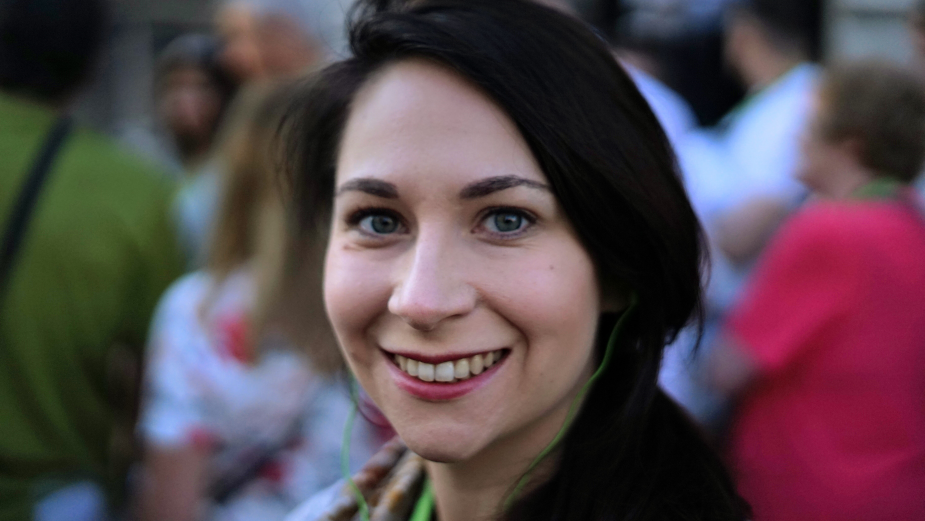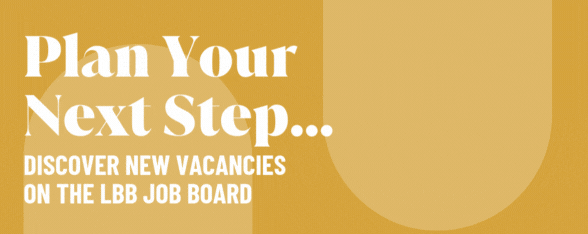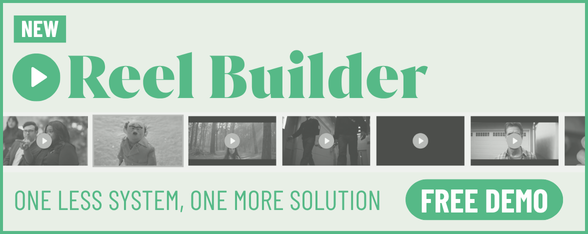
Meet Your Makers: Getting Lost in the Story with Annie-Claude Lapierre

Annie-Claude Lapierre is an associate producer at The Embassy having originally joined the studio in 2014. Annie-Claude has produced visual effects within the film, television and commercial worlds. She has recently completed production on the second season of Warrior Nun for Netflix and over the years has also worked with numerous commercial clients including GMC, Disney, Flonase, Toyota and Credit Karma.
LBB> What first attracted you to production - and has it been an industry you’ve always worked in or did you come to it from another area?
Annie-Claude> I’ve always been fascinated by the making of shows, particularly movies but even stage and circus shows! My favourite part of watching movies growing up was often the ‘making of’ DVD featurettes. I love seeing a large group of people, all with different skills, come together to make something amazing. With that passion, and with my interest in computers and programming, it was a natural path to VFX. I went to university to study multimedia arts, but I quickly realised that I am not very artistic, and that I much prefer the world of spreadsheets and coordinating the moving parts of a production than actually creating the art.
LBB> What was your first role in the production world and how did this experience influence how you think about production and how you grew your career?
Annie-Claude> I started as a production assistant (PA) at MPC on Sherlock Holmes: A Game of Shadows. I was part of the department looking after the outsourced work for roto, paint and tracking. It was an interesting position as we had to manage a team of artists that we didn’t know personally and that were working in a different office on a different time zone. I learned a lot about staying organised, managing priorities and communicating clearly during that time.
We also had our own internal team of artists that we managed. I loved having that small team to work with, and that definitely influenced me to seek a smaller studio later on in my career.
LBB> How did you learn to be a producer?
Annie-Claude> As we all do, I learned by watching and doing. My whole career has been in VFX, and I’ve taken contracts at a few different companies, so I’ve had the chance to observe multiple production teams. That is how I discovered that I liked the more hands-on aspect of a smaller boutique house. The Embassy gave me the opportunity to both be in the trenches of production while still being able to interact with clients and higher ups. It offered me the space to discover what I liked and to grow in my role. I’ve also been really fortunate to work alongside some great mentors that were always happy to share their knowledge and push me forward. But I’m still learning how to do this! Every project and every client brings something new to the table, a new set of challenges and surprises. That’s the beauty of various contracts, you get to always learn, improve and adapt to the needs.
LBB> Looking back to the beginning of your career, can you tell us about a production you were involved in where you really had to dig deep and that really helped you to grow as a producer?
Annie-Claude> I’ve always had trouble making decisions. Which is a funny thing to admit when you are a producer. As a PA and coordinator, you often aren’t at the top of the line to make the final decisions. But I remember during the first big show that I managed, which was a full TV series for Netflix, my VFX supervisor would often turn to me and say “You’re the manager, what do you want to do with this?” regarding priorities, a specific client note, or sending a shot for review, etc. He would put me on the spot, and that is when I started realising what my role meant. My decision mattered and had an impact on this production. I started taking more ownership at that time and it really helped give me the confidence I needed to continue growing.
LBB> A good producer should be able to produce for any medium, from film to events to digital experience. Do you agree or disagree with this statement? Why/why not?
Annie-Claude> I believe that is true to a certain extent. The basics of producing are client management, communication and organisation. Every medium will have its own quirks and unique steps to learn, but the underlying structure generally remains the same. But one of the most important aspects is to surround yourself with the right people for the project. You don’t want to do everything. Build your crew, learn to listen and trust them! You need the village, both to do all the tasks required, but also to support each other throughout.
And although a good producer can work in any medium, having an understanding and a passion for the medium you are working with is what makes an even greater producer.
LBB> What’s your favourite thing about production and why?
Annie-Claude> Solving the puzzle. At the start of a project, you have all of these disconnected pieces that may or not be fully defined, all thrown about. It’s our job to see the big picture and start defining these pieces and make them fit together in some sort of crazy plan! Because you also know that sometimes, the pieces you may want, may not be there. Then the question becomes how do you solve the puzzle around that. I think it’s a fascinating process and I love the collaboration that comes out of it, where you and your team come together to find the answers.
LBB> What do you think is the key to being an effective producer - and is it something that’s innate or something that can be learned?
Annie-Claude> Understanding that we’re all in it together, having flexibility and being honest. We’re a team, we’re human, and we’re not saving lives. This process should be fun for everyone. Being honest about where you are at, what you have, so that all other parts of the machine can know and adapt if needed makes a big difference.
LBB> Which production project from across your career are you most proud of and why?
Annie-Claude> The first season of Warrior Nun is easily at the top of my list. I loved working on this show. Our team was the sole vendor for all 10 episodes, and it was the most shots I’ve ever managed. I ended up having nearly full control on how to schedule this show in a way that would work for us.
The other wonderful advantage of this show was that we were brought on at the very beginning of the project, during script writing and revisions! It was amazing to read the various drafts of the scripts and see the story evolve. And from there, build the lore, the magic, the background stories. The production team was great to work with and really collaborative. We got to suggest looks for a lot of the key effects and influence the visuals of the show. As well, we had a great relationship with the production team and the clients, which made the whole process even more enjoyable. And we got through the show with minimal overtime, which is extraordinary in VFX!
I’m a big fan of stories, and working on a full season of a show, really diving deep into it, was truly enjoyable.
LBB> Producers are problem solvers. What personally fuels your curiosity and drive?
Annie-Claude> I love stories. Getting lost in a story, whether through a book, a movie or just someone telling one, is a wonderful form of escapism where you may even learn or process something. The fact that I can use my skills to help bring these stories to life for people is what drives me most.
LBB> What advice would you give to people who are interested in becoming a producer?
Annie-Claude> Dive deep. Learn how the machine works - you don’t need to know the details, but understand the overall process. Learn the production software you are using, they will make your life easier. And learn to adapt. You’ll deal with so many different personalities, knowing how to handle them will make things easier.
LBB> What’s the key to a successful production-client relationship?
Annie-Claude> Understanding that we are both trying to reach the same goal - delivering the project. Being honest and open throughout the process, and seeing how we can help each other at the various stages.
















